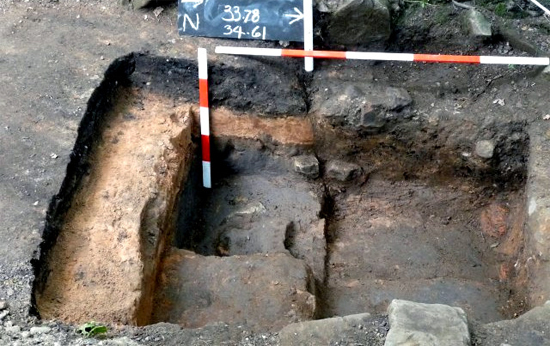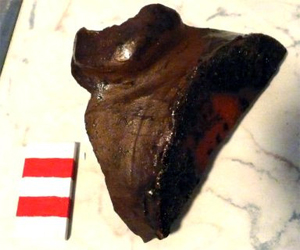|
Planning Policy Statement 5 (PPS5) was published in March this year and marks a significant change in the government's attitude towards the conservation of the 'Historic Environment'. It replaces both the PPG15 and PPG16 documents which local authorities have been using since the mid 1990's when granting applications to developers. The introduction of these guidelines at the time caused a major change in the way archaeology was conducted throughout the country.
Instead of University led research funded by the government, most archaeology became rescue archaeology carried out by contract units and paid for by the developers. Gone were the days when contractors had no obligation to stop work if they found ancient remains. Archaeological conditions are now placed on applications before they are granted. The system however has not been without its detractors but, in the main it has proved successful - a typical example being the discovery of Wigan's bathhouse which would most likely have gone unrecorded before PPG16 (PPG15 is the equivalent for buildings).
PPS5 goes much further making it a statuary obligation for local authorities to have and maintain a Sites and Monuments Record (or Heritage Environment Record as it's now called). It also places a duty on local authorities to carry out assessment and evaluations on all 'heritage assets' prior to the granting of any application (whether designated or un-designated). For the built environment Wigan is more fortunate than other authorities in that it has its BLINTS list (Buildings of Local Interest) which is intended to give some added recognition to un-designated structures (Wigan has over 600 listed buildings but only 12 designated ancient monuments). However with organisations, such as Wigan's Environment & Heritage Network and pressure groups like www.savewigan.co.uk (with its own 'at risk register'), our architectural heritage stands a better chance than most. We can only hope this new statement will also give added protection to our archaeological assets. If you want to find out more you can log on to this government website.
Digging at Dunham
If you want to develop your archaeological skills, the Nation Trust are inviting people to come along to Dunham Massey and help them look for long lost 17th century buildings in the deer park. Participation is free and will take place between 20th and 29th July. If you are interested you can contact them on 0161 941 1025
Rectory Progress
 Things are getting more complicated at the Rectory site. Our assumption was that the dirt track had been laid on virgin ground. However as you can see from this section through the north edge there are number of construction layers (including sand, gritty dirt and black sedimentary soil). The lowest layer produced this unusual piece of pottery which could date to the 17th century. On the south side of the track, the clay filled trench discovered last month, turns out to have been dug to bury a cast iron pipe (measuring 12cm in diameter). Whether this is drain, mains water or even gas is uncertain, but it certainly pre-dates the dirt track as there is no sign of the trench cutting through it.
Things are getting more complicated at the Rectory site. Our assumption was that the dirt track had been laid on virgin ground. However as you can see from this section through the north edge there are number of construction layers (including sand, gritty dirt and black sedimentary soil). The lowest layer produced this unusual piece of pottery which could date to the 17th century. On the south side of the track, the clay filled trench discovered last month, turns out to have been dug to bury a cast iron pipe (measuring 12cm in diameter). Whether this is drain, mains water or even gas is uncertain, but it certainly pre-dates the dirt track as there is no sign of the trench cutting through it.

Roman Wigan Talk
On Thursday 22nd July Ian Miller will be giving a talk at the New Museum of Wigan Life starting at 6.45pm. If you missed last year's visit by Ian this will be a chance to catch up on current thinking about Roman Wigan. It cost £5 but includes refreshments. If you are interested contact 01942 828128
Summer Trip
Just a reminder there are still places on our trip to York in August so if you are interested in going but haven't yet booked please contact Mary as soon as possible.
Next Meeting
Wednesday 7th July in the concert room of the Upper Morris Street Working Men's Club (off Greenough Street), starting at 7.30 pm as usual. In 1648 a Scottish army came south in support of the Royalist cause. These forces under the Duke of Hamilton got as far as Preston before Cromwell caught up with them. The ensuing battle saw the rout of the Scottish forces through Wigan as far as Warrington which signalling the end of the second phase of the English Civil War. Our speaker this month is Paul Cross who will be giving us a talk on this fascinating period in British history.
Hope to see you there - BA
|



